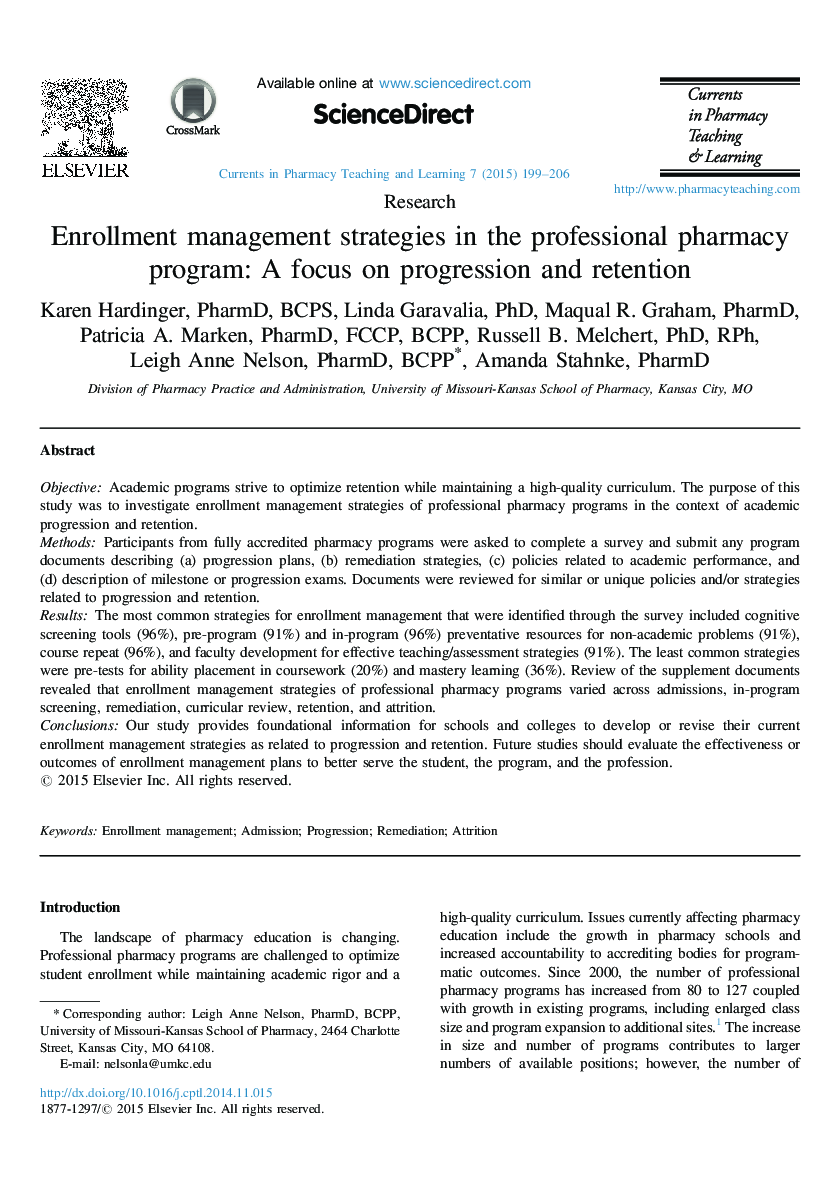| Article ID | Journal | Published Year | Pages | File Type |
|---|---|---|---|---|
| 353302 | Currents in Pharmacy Teaching and Learning | 2015 | 8 Pages |
ObjectiveAcademic programs strive to optimize retention while maintaining a high-quality curriculum. The purpose of this study was to investigate enrollment management strategies of professional pharmacy programs in the context of academic progression and retention.MethodsParticipants from fully accredited pharmacy programs were asked to complete a survey and submit any program documents describing (a) progression plans, (b) remediation strategies, (c) policies related to academic performance, and (d) description of milestone or progression exams. Documents were reviewed for similar or unique policies and/or strategies related to progression and retention.ResultsThe most common strategies for enrollment management that were identified through the survey included cognitive screening tools (96%), pre-program (91%) and in-program (96%) preventative resources for non-academic problems (91%), course repeat (96%), and faculty development for effective teaching/assessment strategies (91%). The least common strategies were pre-tests for ability placement in coursework (20%) and mastery learning (36%). Review of the supplement documents revealed that enrollment management strategies of professional pharmacy programs varied across admissions, in-program screening, remediation, curricular review, retention, and attrition.ConclusionsOur study provides foundational information for schools and colleges to develop or revise their current enrollment management strategies as related to progression and retention. Future studies should evaluate the effectiveness or outcomes of enrollment management plans to better serve the student, the program, and the profession.
